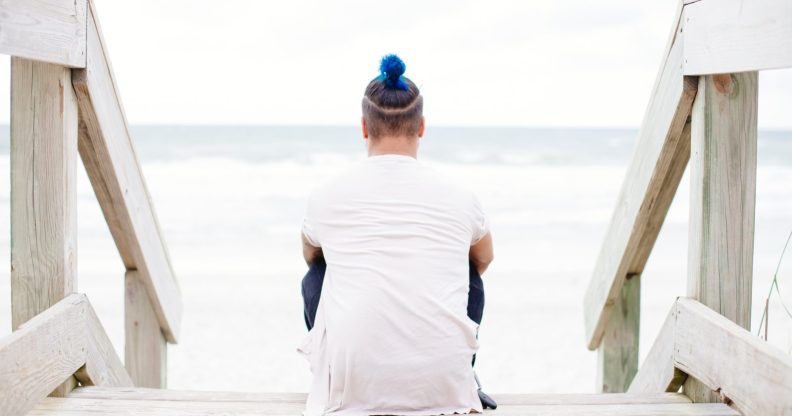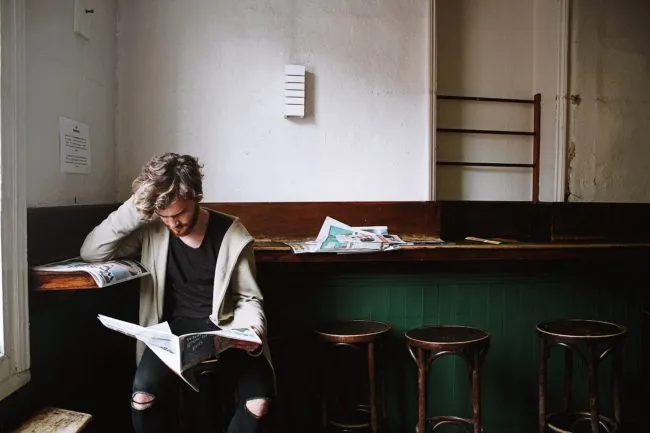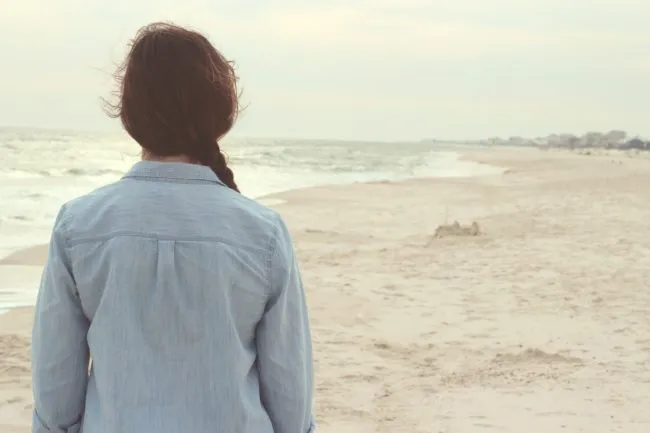Why are so many gay millennials alone?

We often hear that Millennials are more lonely, alone, than any generation before. If this is true, then how has it happened? And has technology got anything to do with it?
Being lonesome and single is the most commonly perpetuated stereotype.
Look at our dear friend Bridget Jones over in the straight world who, single and drunken, is also confused and unhappy. How did she end up there, in her mid-thirties?
Those in the LGBT+ community sympathise with Bridget not only because she’s a fabulous ally but because her fears are all too real – we share them too.
In fact, queer millennials face an arguably even tougher time of it than our straight friends.
There is a myriad of factors for why we feel alone, but needless to say, the digital world is doing nothing to reduce our feelings of isolation.
Poisoned by choice
Dating apps like Grindr, Tinder and Chappy ultimately serve to offer us more potential lovers than we could ever need, which makes us feel hopelessly overwhelmed.
The swipe-right dating centre is desensitising single millennials from the true authentic connections we should be experiencing one-at-a-time.
In turn, millennials feel what psychologists refer to as choice overload. When there are all the potential partners in the world, it also feels like there are none.
In other words, who do you choose to say hello to when you’ve matched with 35 people in one day? It’s easy to blithely carry on swiping like nothing ever happened.

A 2010 study by American academic Sheena Iyengar, a professor of business at Columbia University and the author of The Art of Choosing, proved that too much choice really is debilitating.
Offering random participants a choice of six products to taste, and another set of participants 24 products, 30 percent of tasters from the six pot sample went on to buy one of the products they tried.
But a minuscule three percent of the tasters who were presented with 24 products decided to buy one to take home.
Such tests prove that less choice is more opportunity – but nevertheless, millennials are managing to meet online despite the challenges online dating throws up.
For instance, a sociological paper in 2012 found out 70 percent of same-sex couples had indeed met online.
We feel like we have more time
Also, we must also acknowledge that these days we don’t experience the same urgency to meet ‘the one’ as experienced by our parents.
There just isn’t. This is partially because we expect more from life.

Millennials are driven more by experiences than by relationships or finances, raking in as many different life experiences as we can, rather than committing to finding a relationship.
This is a millennial contradiction: we’re lonelier, but not willing to sacrifice our modern freedoms like solo travel or returning to university to solve that loneliness.
We’re more ambitious in every aspect of life, making us pickier with finding new partners, and happier to risk it in the hope we’ll find the perfect match later down the line.
A study run by events company Event Brite shows how, “Millenials are turning away from materialism and traditional measures of success, and instead focusing their (considerable) disposable income on experiences.”
65 percent of the 18-34-year-olds surveyed in the survey (how to define a Millennial is still a contentious topic but they are loosely the people currently in their Twenties and Thirties) admitted to liking experiences more than possessions.
If our ambition is keeping us alone, other trends suggest we’re enjoying the single life more than ever.
A huge rise in the interest in gay solo travel hints that being single has its own liberating qualities for a life spent (at least, partially) alone.
Mental health
What is more concerning is that the Millennial search for perfection has caused a rise in mental health issues, which has caused a downturn in gay millennials wanting to go on dates more generally.
A new study in Psychological Bulletin has found that “a combination of excessively high personal standards and overly critical self-evaluations” is leaving LGBT+-identifying people with higher levels of anxiety and depression.

Couple these results with the staggeringly high rates of poor mental health within the LGBT+ community anyway, because of the well-understood problems facing marginalisation in the queer community.
Nevertheless, a swing back to dating in-person is aiming to add personalisation back into dating by making dating feel more natural, and reducing the choice overload complex.
Sites like Match.com and Ok Cupid are organising more and more in-person meetups and events to encourage Millennials to skip the swipe and date IRL.
“Fast, impulsive, sexting, quick hookups, [and] isolation from real world dating enables singles to hide out, isolate, avoid, not learning how to date, or follow through with dating and love skills for life partners,” Dr. Wendy O’Connor, Technology Communication Expert and Licensed Family & Relationship Therapist told Bustle.
The millennial drive for a perfect lifestyle means dating is only one small part of a wider picture – but the search for perfection, coupled with digital technology, may be derailing us mentally.

